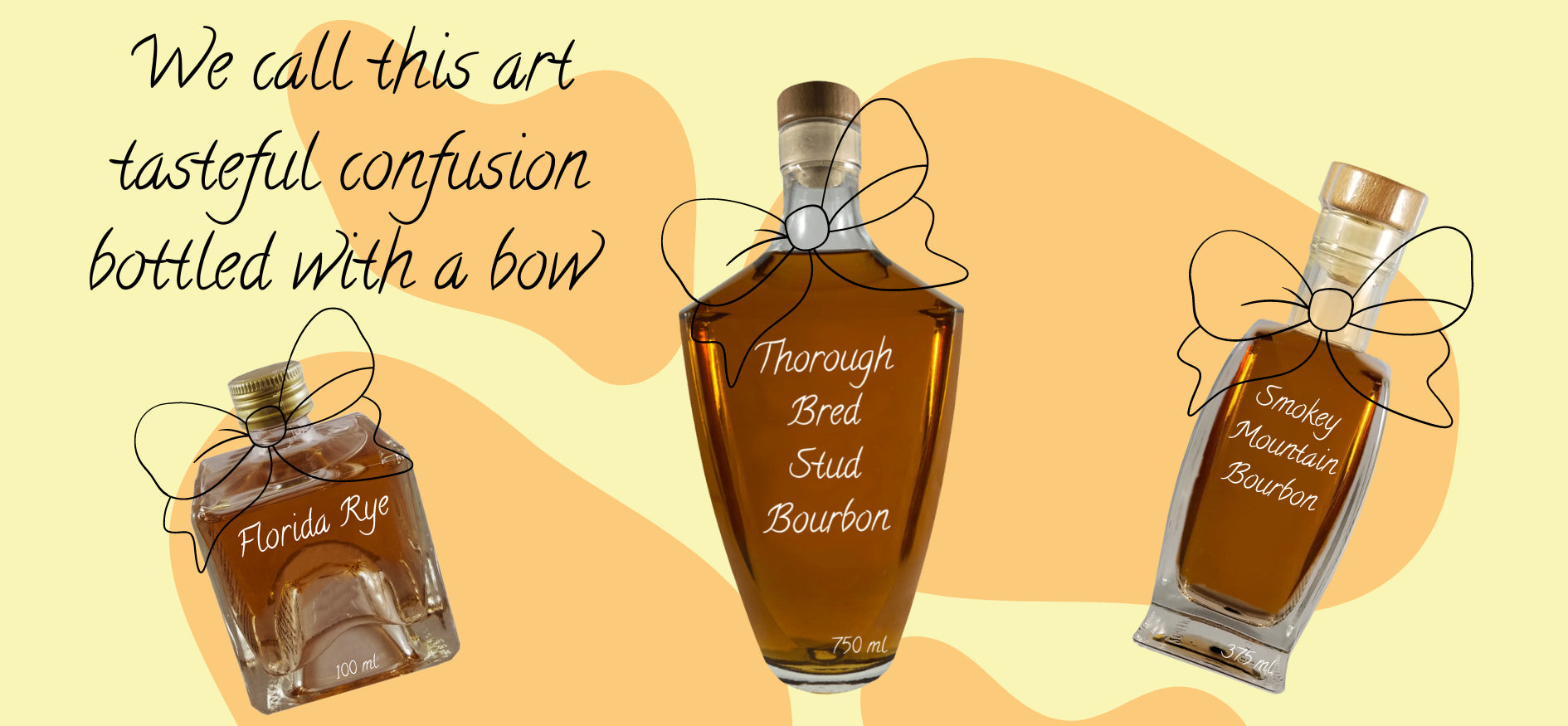Your Cart is Empty
Try Before You buy in our retail stores!
Try Before You buy in our retail stores!

Bourbon is a type of whiskey, so the main difference between bourbon and whiskey lies in their specific characteristics and production methods. Here are the key distinctions:
Geographic Requirement: Bourbon is a distinctive type of American whiskey and is recognized as a distinct product of the United States. It must be produced within the United States to be labeled as bourbon, while whiskey can be produced in various countries worldwide.
Mash Composition: Both bourbon and whiskey are grain-based spirits, but they have different requirements for their mash composition. Bourbon must have a mash bill (the mix of grains used) that consists of at least 51% corn. The remaining percentage can include other grains such as barley, rye, or wheat. On the other hand, whiskey can have different types of mash bills, including those with higher proportions of grains like rye or wheat.
Aging Process: Both bourbon and whiskey are aged in wooden barrels, typically made from charred oak. However, bourbon has a specific aging requirement. It must be aged in new charred oak barrels, whereas whiskey can be aged in used barrels or barrels made from different types of wood.
Distillation Process: Bourbon and whiskey can both be produced using various distillation methods, such as pot still distillation or column still distillation. The distillation process itself doesn't differentiate bourbon from whiskey.
Flavor Profile: Due to differences in mash composition and aging, bourbon and whiskey can have distinct flavor profiles. Bourbon tends to be slightly sweeter, with prominent notes of caramel, vanilla, and sometimes a hint of fruitiness. Whiskey flavors can vary widely depending on the specific type (e.g., Scotch whisky, Irish whiskey, rye whiskey), but they often exhibit a broader range of flavors, including smoky, peaty, or spicy notes.
Remember that all bourbons are whiskeys, but not all whiskeys are bourbons. The distinction lies in the specific legal requirements and production methods associated with bourbon, making it a unique category within the broader whiskey family.